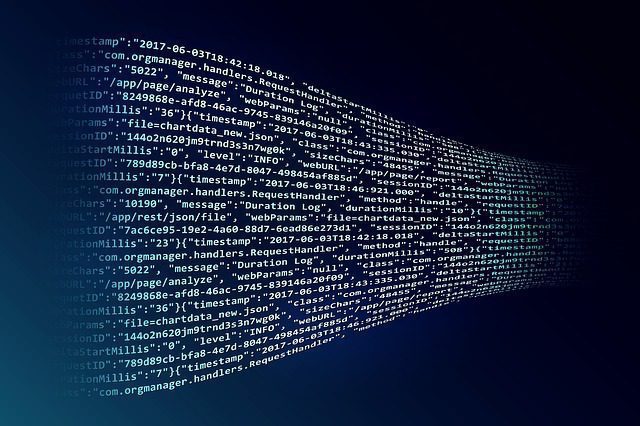
Cybersecurity has turned out as one of the essential features of every modern business. The current market size stands at over USD 160 billion and showcases a projected growth between 2023 and 2028 of about 9.63%.
There are a few of the massive beneficiaries of the tech features including the software developers. Cybersecurity, therefore, plays a key role across the numerous phases of software development. Our post today will dive deeper into the real importance of cybersecurity across modern businesses.
What Is Cybersecurity?
Cybersecurity primarily involves the safeguarding and restoring of computer systems, devices, networks, and software from cyberattacks. The sensitive data is prone to greater risk from these attacks, making them highly dynamic and challenging, while the attackers are using cutting-edge techniques to get around these conventional data security measures that include social engineering as well as AI or Artificial Intelligence.
The advancements in technology increase the dependence on these developments. At the same time, the trend continues with the development of new technologies that can be connected to devices with the help of WiFI and Bluetooth in the future.
Suppose you plan to safeguard consumer data by adopting new technologies and cybersecurity tools. In that case, it is important to combine sound cloud security measures with strict password policies like multi-factor authentication to reduce any unauthorized access.
Importance of Cyber Security in Software Development
Cybersecurity is of greater emphasis, especially in software development. The following are the key roles in this aspect of the entire development cycle:
Safeguarding Sensitive Information
The software applications mainly store sensitive information like passwords and credit card details. Criminals often use this data to steal user identities and commit crimes. Data breaches are an expensive affair for businesses in terms of legal costs, loss of revenue, and damages to their reputations. Alternatively, the customers might even undergo financial losses and social-related threats.
Consequently, you should be keen to implement strong measures into your applications, preventing any unauthorized access to the information. The rise of software development outsourcing even includes third and fourth-party service providers, where you should have robust third and fourth party risk management measures in place. It helps to secure the corporate and user data.
Regular security audits and proper risk assessment measures are the key to identifying and fixing errors. Using this with the latest cybersecurity threats enables you to prevent the attackers from exploiting the loopholes in the software applications. Businesses are investing in software applications and third-party risk management solutions. Therefore, you can expect the cybersecurity market share in the sector to continue evolving in the future.
Meeting Regulatory Requirements
The industries out there have their regulatory requirements that the companies should meet to ensure the privacy and safety of customer data. You should have the regulations and vendor risk assessment in place where you are using third-party software developers. It is in that manner you can avoid the legal repercussions against them with the companies hiring the services.
GDPR, General Data Protection Regulation, and the Payment Card Industry Data Security Standard offer identical policies. Lacking complying with such regulations would lead to serious legal outcomes, including lawsuits and fines. It would also damage the business’s reputation.
Maintaining Customer Trust
Customer trust is important across business transactions. It is important for establishing long-term relationships and retaining customers.
But, without the appropriate cybersecurity measures, businesses are at risk of these cyber-attacks and data breaches that would eventually compromise the customers’ sensitive data. It would lead to the break of reputation and trust, making it tough for the businesses to function.
Although software applications are highly convenient for businesses as well as customers, they form the primary target of cyber crimes, and it is the reason why it is important to have a cyber risk assessment in place.
Numerous businesses would address such concerns with the implementation of strong cybersecurity measures in software development. A few of the features that help companies regain and maintain customer loyalty are access controls, data encryption, and network security protocols.
Ensuring Software Reliability
The other vital aspect of the business is the software reliability. It can help ensure that the program is functioning appropriately and is not suffering any unexpected failures. Software reliability is the key since it boosts customer satisfaction while preventing user frustration. It also enhances the safety and productivity of the main system while reducing any legal or financial implications.
It enables the developers and the cybersecurity professionals to identify the risks involved with the software before attackers exploit them. The regular updates and the fixes for the software applications will help strengthen the security while eliminating potential flaws.
With every measure in place, the software applications will work flawlessly. The program failures would result from preventable criminal threats.
Conclusion
The rapidly growing importance of cybersecurity across the software development platform can never be ignored. Software development comes with its own set of challenges considering security as software gets tailored to meet the users’ distinctive needs, making it the key target for hackers.
However, following the proper approach with a greater focus on the implementation of robust security measures from the outset aids software development in offering a reliable, secure, and dependable solution for people and businesses alike.
Author Bio:
Nagaraj Kuppuswamy is the Co-founder and CEO of Beaconer, an esteemed enterprise specializing in managed third-party risk using the cloud-native AI-based solution. With an extensive portfolio of accolades and industry certifications, Nagaraj stands out as a seasoned expert, boasting over 16 years of dedicated involvement in the field of Cybersecurity. Throughout their career, he has predominantly focused on elevating the realm of third-party risk assessment. You can connect with him through Linkedin.








